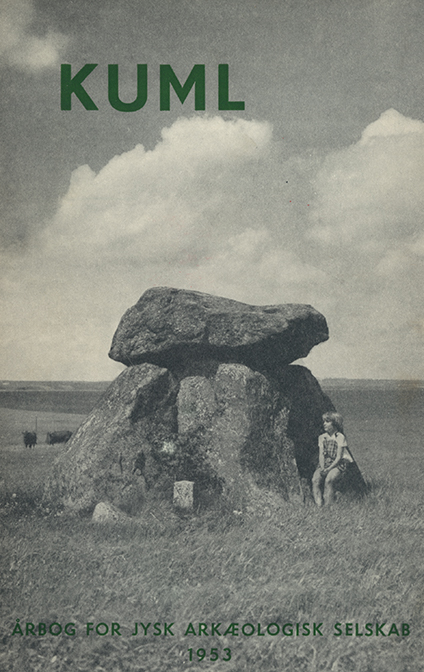En græsk pyxis fra Homers tidsalder
DOI:
https://doi.org/10.7146/kuml.v3i3.97121Nøgleord:
pyxis, AtticaResumé
A Greek Pyxis from the age of Homer
The collection of Oriental and Classical Antiquities at the university of Århus (see "Kuml" 1952, p. 107) has acquired in the past year a number of additional antiquities, one of which is the geometrical pyxis shown in fig. 1 (entire height 13,8 cms., diam. 15,1 cms.). This piece of pottery is especially remarkable for the horse figure on its lid, which is mainly intact and gives an idea of Greek modelling in about the first half of the 8th century B. C. Like other pyxides of that type it has two pairs of holes bored through the edge of the lid into the rim of the receptacle. These holes prove that the lid and the receptacle belong together. Probably they served for fastening strings for suspension so that the bottom of the vase, which is decorated with concentric stripes and a central star, was visible from below.
The place of discovery of the vase is unknown, but style and clay point towards Attica. It may have been found in a grave such as that illustrated in fig. 2, which is from the same period and also contains a horse-pyxis.
Kristian Jeppesen
Downloads
Publiceret
Citation/Eksport
Nummer
Sektion
Licens
Fra og med årgang 2022 er artikler udgivet i Kuml med en licens fra Creative Commons (CC BY-NC-SA 4.0).
Alle tidligere årgange af tidsskriftet er ikke udgivet med en licens fra Creative Commons.


